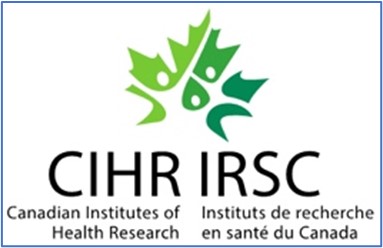Applied Health Research & Knowledge Mobilization Lab
Team Leader - Dr. Jeanna Parsons Leigh

"Without knowledge mobilization, health research remains inaccessible to a large portion of the population it is intended to serve"
Latest Contributions to News and Media
Health Research Update |
|---|
Health Research UpdateThe Value for Money study team describe key findings and recommendations in this Policy Brief
Dr. Jeanna Parsons Leigh named Izaak Walton Killam Memorial Chair
Jeanna explains what this means to her and her team and her research going forward.Ìý
Read more here
Interview with Dr. Parsons Leigh

Dr. Parsons Leigh interviewed for profile of Sepsis Canada, a multidisciplinary collaborative network to reduce the burden of sepsis in Canada.
Currently Recruiting |
|---|
No studies are currently recruiting participants.Ìý
Publications (Select) |
|---|
For full list of publications visit: Link to
- Parsons Leigh, J., Fiest, K., Brundin-Mather, R., Plotnikoff, K., Soo, A., Sypes, E., Whalen-Browne, L., Ahmed, S., Burns, K., Fox-Robichaud, A., Kupsch, S., Longmore, S., Murthy, S., Niven, D., Rochwerg, B., Stelfox, H. A national cross-sectional survey of public perceptions of the COVID-19 pandemic: Self-reported beliefs, knowledge, and behaviors,
- Parsons Leigh, J., de Grood, C., Brundin-Mather, R., Dodds, A., FitzGerald, E. A., Kemp, L., Mizen, S. J., Whalen-Browne, L., Stelfox, H. T., & Fiest, K. M. (2022, January). Identification and Assessment of Strategies to Address Gender Inequity in the Specialty of Critical Care Medicine: A Scoping Review, Modified Consensus Process, and Stakeholder Meeting. Critical Care Explorations, 4(1), e0612. Ìý
- Parson Leigh, J., Sypes, E. E., Straus, S. E., Demiantschuk, D., Ma, H., Brundin-Mather, R., de Grood, C., FitzGerald, E. A., Mizen, S., & Stelfox, H. T. (2022). Determinants of the de-implementation of low-value care: a multi-method study. BMC Health Services Research, 22(1), 1-11. .Ìý
- Parsons Leigh, J., Moss, S. J.*, White, T. M., Picchio, C. A., Rabin, K. H., Ratzan, S. C., Wyka, K., El-Mohandes, A., & Lazarus, J. V. (2022). Factors affecting COVID-19 vaccine hesitancy among healthcare providers in 23 countries. Vaccine, 40(31), 4081–4089.
- Parsons Leigh, J., Brundin-Mather, R., Moss, S. J., Nickel, A., Parolini, A., Walsh, D., Bigham, B. L., Carter, A. J. E., Fox-Robichaud, A., & Fiest, K. M. (2022/11/03). Public awareness and knowledge of sepsis: a cross-sectional survey of adults in Canada. Critical Care, 26(1), 337.

